Changing Divorce Law?
02/15/17 14:06
Lawmakers Trying to Change Japan’s Divorce Laws Involving Children
By Joe Renzi
The other day, an article titled, “New Bill Seeks to Promote Parent-Child Interaction Following Divorce” ran in the The Japan Times. I think it is an interesting article that I’d like to share with the other members of the Family In Japan class. This article is perfectly timed to what we will be discussing next week – “how to get divorced.”
This article is an example of the “contested and shifting social norms surrounding parents and children after divorce” (Alexy, unpublished. “Constructing Mutuality.” From her, Divorce and the Romance of Independence in Contemporary Japan, p 30.). Currently, joint custody is not permitted in Japan. Now, lawmakers in Japan are introducing bills to the Diet on June 18th which will:
• require parents who are getting a divorce to write a formal, legal document stating the visitation details and child-cost agreements.
• stipulate that parents are to remain a part of the child’s life with periodic visits.
• ask the state to consider a joint parental custody system.
The act of obtaining a mutual divorce in Japan does not involve a lot of legal proceeding and services, and so is pretty easy. A couple simply agrees to the terms, signs/stamps the paper, and files the document with the city. Short-term, it will be interesting to watch the Diet’s ruling in June. Looking ahead, the impact of this bill (if passed) on Japanese divorces could likely be the source of an interesting, academic study.
Citation:
Jiji, Kyodo. "New bill seeks to promote parent-child interaction following divorce." The Japan Times. February 06, 2017. Accessed February 08, 2017. http://www.japantimes.co.jp/news/2017/02/06/national/new-bill-seeks-promote-parent-child-interaction-following-divorce/#.WJ0VM_krK1s
By Joe Renzi
The other day, an article titled, “New Bill Seeks to Promote Parent-Child Interaction Following Divorce” ran in the The Japan Times. I think it is an interesting article that I’d like to share with the other members of the Family In Japan class. This article is perfectly timed to what we will be discussing next week – “how to get divorced.”
This article is an example of the “contested and shifting social norms surrounding parents and children after divorce” (Alexy, unpublished. “Constructing Mutuality.” From her, Divorce and the Romance of Independence in Contemporary Japan, p 30.). Currently, joint custody is not permitted in Japan. Now, lawmakers in Japan are introducing bills to the Diet on June 18th which will:
• require parents who are getting a divorce to write a formal, legal document stating the visitation details and child-cost agreements.
• stipulate that parents are to remain a part of the child’s life with periodic visits.
• ask the state to consider a joint parental custody system.
The act of obtaining a mutual divorce in Japan does not involve a lot of legal proceeding and services, and so is pretty easy. A couple simply agrees to the terms, signs/stamps the paper, and files the document with the city. Short-term, it will be interesting to watch the Diet’s ruling in June. Looking ahead, the impact of this bill (if passed) on Japanese divorces could likely be the source of an interesting, academic study.
Citation:
Jiji, Kyodo. "New bill seeks to promote parent-child interaction following divorce." The Japan Times. February 06, 2017. Accessed February 08, 2017. http://www.japantimes.co.jp/news/2017/02/06/national/new-bill-seeks-promote-parent-child-interaction-following-divorce/#.WJ0VM_krK1s
EC - Teach in
02/01/17 13:36
I’m happy to give extra credit to any student who attends this event and writes a reflection.
The deputy director of the Michigan ACLU, Rana Elmir, will be speaking at a teach-in on the Executive Order on immigration and refugees, with specific reference to its potential impact on U-M students, this Thursday from 7-9PM in 3512 Haven Hall.
The teach-in is hosted by the U-M Muslim Graduate Student Association with the support of the Arab and Muslim American Studies (AMAS) Program in American Culture. Event flyer attached. All are invited, and there will also be a livestream here: https://www.youtube.com/watch?v=FIisClK0MSE.
The deputy director of the Michigan ACLU, Rana Elmir, will be speaking at a teach-in on the Executive Order on immigration and refugees, with specific reference to its potential impact on U-M students, this Thursday from 7-9PM in 3512 Haven Hall.
The teach-in is hosted by the U-M Muslim Graduate Student Association with the support of the Arab and Muslim American Studies (AMAS) Program in American Culture. Event flyer attached. All are invited, and there will also be a livestream here: https://www.youtube.com/watch?v=FIisClK0MSE.
EC - Asia is the Gayest!
02/01/17 13:35
I’m happy to give extra credit to any student who attends this event and writes a reflection.
Audrey Yue from the University of Melbourne, Australia
LECTURE
All are welcome
Thursday, February 2, 2017
4:00pm-5:30pm
North Quad 2435
"OF ALL THE CONTINENTS IN THE WORLD,
ASIA IS THE GAYEST!"
ON TRANS-SINGAPORE AND QUEER ASIA AS METHOD
This lecture will reflect on two developments in critical theory that have brought new methods in the humanities: the turn to Asia as a source of debate in theory and the transitional turn in queer studies.
Audrey Yue from the University of Melbourne, Australia
LECTURE
All are welcome
Thursday, February 2, 2017
4:00pm-5:30pm
North Quad 2435
"OF ALL THE CONTINENTS IN THE WORLD,
ASIA IS THE GAYEST!"
ON TRANS-SINGAPORE AND QUEER ASIA AS METHOD
This lecture will reflect on two developments in critical theory that have brought new methods in the humanities: the turn to Asia as a source of debate in theory and the transitional turn in queer studies.
EC - Why Evidence Still Matters
01/27/17 14:03
I’m happy to give extra credit to students who attend this talk and write a reflection about it.
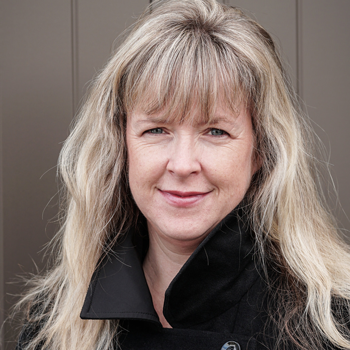
| Politicized Science: Why Evidence Still Matters |
| Feminist Science Studies |

Sexpertise Conference
01/24/17 09:21
For those who might be interested...
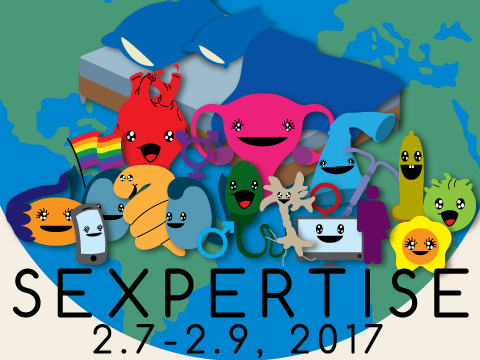
How can I communicate about what I want and don't want?
What can I do to improve my sexual health and wellness?
How do identities, the media, and culture shape our sexuality?
Find the answers to these and other questions at Sexpertise 2017!
Sexpertise is a three-day conference from February 7th to 9th, 2017. It engages students, faculty, and community practitioners in discussion and learning about sexuality and relationships. Through a diverse group of sessions, we'll explore topics of interest to the U-M student community including pleasure, culture, wellness, relationships, and more! All events are free and open to the public. Registration is encouraged but not required, and you are invited to attend one, a few, or all sessions!
Website with the schedule is here.

How can I communicate about what I want and don't want?
What can I do to improve my sexual health and wellness?
How do identities, the media, and culture shape our sexuality?
Find the answers to these and other questions at Sexpertise 2017!
Sexpertise is a three-day conference from February 7th to 9th, 2017. It engages students, faculty, and community practitioners in discussion and learning about sexuality and relationships. Through a diverse group of sessions, we'll explore topics of interest to the U-M student community including pleasure, culture, wellness, relationships, and more! All events are free and open to the public. Registration is encouraged but not required, and you are invited to attend one, a few, or all sessions!
Website with the schedule is here.
Joe Renzi on Japanese Female Politicians
01/17/17 20:28
Joe sends in this fascinating reflection!
National Public Radio: Women Are Making Their Voices Heard In Male-Dominated Japanese Politics
Review By Joe Renzi
The other morning I heard a podcast on National Public Radio that caught my attention because it focused on many of the topics covered in the book, Perfectly Japanese, by Merry White. In the podcast, NPR reporter, Elise Hu, pointed out some of the struggles that Japanese women have faced in the workforce because of social hierarchy, limited daycare options, and cultural pressure to remain subservient to men.
I think it is duplicitous that the Japanese government claims that it wants to see an increase in the number of women in management posts. But, on the other hand, it doesn’t seem to want to impose the progressive measures or commit the resources to allow women to more readily pursue leadership opportunities (business, government, higher ed) outside the home. In fact, government shies away from lots of meaningful steps to improve the lives of Japanese women, and, indeed, government agencies generally overlook discrimination against women by allowing antiquated, hierarchy laws to stand and tolerating public gender-slamming. It seems pretty clear that discrimination against women, particularly in the workforce, hinders Japan’s ability to reach its targets for women managers.
Additionally, the NPR podcast introduced three Japanese women who overcame barriers to reach high-ranking political offices. One of these, Renho Murata, is the first woman to lead the opposition Democratic Party in Tokyo. I would like to thank Professor Alexy for finding additional articles about Renho (https://www.nytimes.com/2016/09/16/world/asia/japan-renho-murata-democratic-party.html and https://en.wikipedia.org/wiki/Renhō ). Renho’s accomplishment is especially noteworthy because she withstood discrimination first as a woman and second as a person of mixed racial heritage (her mother is Japanese; her father is Taiwanese). Renho’s heritage and her associated dual citizenship issues became a big point of contention in the political arena. (When she was younger, Renho mistakenly missed her opportunity to declare her citizenship status as Japanese only.) Renho’s opponents used her later repudiation of sole Japanese citizenship to call into question her fitness to have a place in Japanese government. I think these articles are interesting because the topics of mixed ancestry, and of Japanese nationalism and allegiance leads us back, in a way, to our discussion of family in Japan.
National Public Radio: Women Are Making Their Voices Heard In Male-Dominated Japanese Politics
Review By Joe Renzi
The other morning I heard a podcast on National Public Radio that caught my attention because it focused on many of the topics covered in the book, Perfectly Japanese, by Merry White. In the podcast, NPR reporter, Elise Hu, pointed out some of the struggles that Japanese women have faced in the workforce because of social hierarchy, limited daycare options, and cultural pressure to remain subservient to men.
I think it is duplicitous that the Japanese government claims that it wants to see an increase in the number of women in management posts. But, on the other hand, it doesn’t seem to want to impose the progressive measures or commit the resources to allow women to more readily pursue leadership opportunities (business, government, higher ed) outside the home. In fact, government shies away from lots of meaningful steps to improve the lives of Japanese women, and, indeed, government agencies generally overlook discrimination against women by allowing antiquated, hierarchy laws to stand and tolerating public gender-slamming. It seems pretty clear that discrimination against women, particularly in the workforce, hinders Japan’s ability to reach its targets for women managers.
Additionally, the NPR podcast introduced three Japanese women who overcame barriers to reach high-ranking political offices. One of these, Renho Murata, is the first woman to lead the opposition Democratic Party in Tokyo. I would like to thank Professor Alexy for finding additional articles about Renho (https://www.nytimes.com/2016/09/16/world/asia/japan-renho-murata-democratic-party.html and https://en.wikipedia.org/wiki/Renhō ). Renho’s accomplishment is especially noteworthy because she withstood discrimination first as a woman and second as a person of mixed racial heritage (her mother is Japanese; her father is Taiwanese). Renho’s heritage and her associated dual citizenship issues became a big point of contention in the political arena. (When she was younger, Renho mistakenly missed her opportunity to declare her citizenship status as Japanese only.) Renho’s opponents used her later repudiation of sole Japanese citizenship to call into question her fitness to have a place in Japanese government. I think these articles are interesting because the topics of mixed ancestry, and of Japanese nationalism and allegiance leads us back, in a way, to our discussion of family in Japan.
EC - Happy Hour
01/17/17 20:14
This movie is loooong, but is supposed to be good. I’m happy to give extra credit to any student who watches it and writes a reflection.
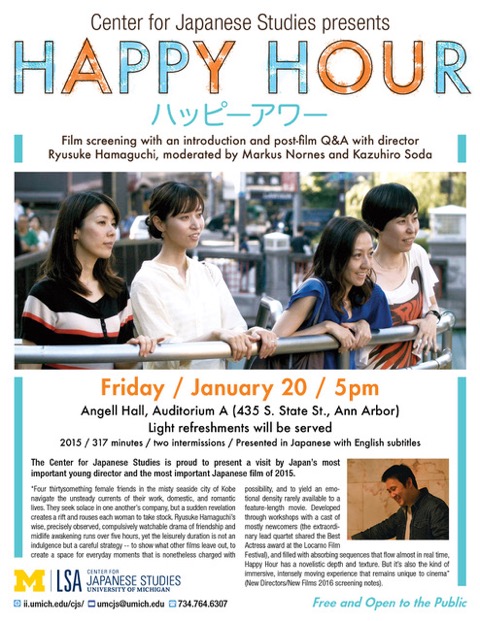

How to Find Facts
01/17/17 19:57
Steve Inskeep wrote A Finder's Guide To Facts.
Here is his central list -
So here's a finder's guide for facts:
First, take a moment. If you have time to scroll Facebook or watch the news, you probably have a moment to decide if a news story seems credible. Ask some quick questions:
Is the story so outrageous you can't believe it? Maybe you shouldn't. Respect the voice inside you that says, "What?"
Is the story so outrageous you do believe it? That's also a warning sign. Many stories play on your existing beliefs. If the story perfectly confirms your worst suspicions, look for more information.
Does the headline match the article? Many compelling headlines don't.
Does the article match the news story it's lifted from? Many sites rewrite other news articles to fit the political slant of their presumed audience. Look for links to original sources and click through and see what the original says.
Are quotes in context? Look for the sentences before and after the quote that makes your blood boil. If the article fails to give them, that's a warning sign.
Is the story set in the future? It's hard to get firsthand reporting from there. Any story that tells you what will happen should be marked down 50 percent for this reason alone.
Does the story attack a generic enemy? Vague denunciations of "Washington" or "the media" or "Trump supporters" or "the left" should be marked down 99 percent. Good reporting doesn't make these kinds of generalizations and is specific about who is making a claim about what.
Are you asked to rely on one killer factoid? Not a good idea. If a hacked document "proves" an implausible conspiracy, look for the context that shows what the document really means. As for photos and video, use Ronald Reagan's old slogan: trust but verify. If there's any doubt about a "stunning" video, see if more traditional sources link to it. They love video clicks as much as anyone. If they refrain, there may be good reason.
Who is the news source, anyway? Traditional news brands may occasionally get it wrong — sometimes hugely wrong — but at least you know where to find them and hold them accountable. Less prominent news sites might carry compelling stories — but expect them to show you who they are and where they gathered information.
Does the news source appear to employ editors? Many news organizations produce stories that are checked before publication. Others don't. It's a big deal. Hiring an editorial staff shows the publication's respect for you, and matters more than "political bias." The New York Times and the Wall Street Journal, for example, have different owners, audiences, stories, perspectives and obsessions. Both have made mistakes and omissions; but both send reporters out into the world and back them up with an editorial process that catches and corrects many errors. This means both can be informative, regardless of your politics or theirs.
Are you told, "Trust me"? Don't. It's the post-trust era! Expect everyone to show where their facts come from, link to underlying articles, and demonstrate that they've argued honestly. Here's a way they may bolster their credibility:
Did the writer engage with anyone who disagrees? Did they call a senator whose legislation bugs them? Did they try to grasp what the president-elect was doing, or merely repeat one of his more outrageous statements? If it's a broadcast interview, was the guest presented with genuine opposing views and challenged to answer? Those who wrestle with opposing arguments do you a service and often improve their own arguments.
These simple questions should take you a long way toward judging the value of a news story. While applying such questions to any given story, you can also take a few more general steps:
Broaden your palate. Make a point to check sites that do not agree with your politics. You may discover stories that are wrong — but you'll know what other people are consuming, which will sharpen your own thinking.
Be open to the idea that some falsehoods are sincerely held. In spite of all the warnings here, some inaccurate news stories grow out of haste or misinformation rather than pure cynicism. (But they're still false.)
If a news source consistently passes the tests in this guide, support it. Gathering reliable information isn't free. Helping to pay for it aligns the news source's interests with yours.
Here is his central list -
So here's a finder's guide for facts:
First, take a moment. If you have time to scroll Facebook or watch the news, you probably have a moment to decide if a news story seems credible. Ask some quick questions:
Is the story so outrageous you can't believe it? Maybe you shouldn't. Respect the voice inside you that says, "What?"
Is the story so outrageous you do believe it? That's also a warning sign. Many stories play on your existing beliefs. If the story perfectly confirms your worst suspicions, look for more information.
Does the headline match the article? Many compelling headlines don't.
Does the article match the news story it's lifted from? Many sites rewrite other news articles to fit the political slant of their presumed audience. Look for links to original sources and click through and see what the original says.
Are quotes in context? Look for the sentences before and after the quote that makes your blood boil. If the article fails to give them, that's a warning sign.
Is the story set in the future? It's hard to get firsthand reporting from there. Any story that tells you what will happen should be marked down 50 percent for this reason alone.
Does the story attack a generic enemy? Vague denunciations of "Washington" or "the media" or "Trump supporters" or "the left" should be marked down 99 percent. Good reporting doesn't make these kinds of generalizations and is specific about who is making a claim about what.
Are you asked to rely on one killer factoid? Not a good idea. If a hacked document "proves" an implausible conspiracy, look for the context that shows what the document really means. As for photos and video, use Ronald Reagan's old slogan: trust but verify. If there's any doubt about a "stunning" video, see if more traditional sources link to it. They love video clicks as much as anyone. If they refrain, there may be good reason.
Who is the news source, anyway? Traditional news brands may occasionally get it wrong — sometimes hugely wrong — but at least you know where to find them and hold them accountable. Less prominent news sites might carry compelling stories — but expect them to show you who they are and where they gathered information.
Does the news source appear to employ editors? Many news organizations produce stories that are checked before publication. Others don't. It's a big deal. Hiring an editorial staff shows the publication's respect for you, and matters more than "political bias." The New York Times and the Wall Street Journal, for example, have different owners, audiences, stories, perspectives and obsessions. Both have made mistakes and omissions; but both send reporters out into the world and back them up with an editorial process that catches and corrects many errors. This means both can be informative, regardless of your politics or theirs.
Are you told, "Trust me"? Don't. It's the post-trust era! Expect everyone to show where their facts come from, link to underlying articles, and demonstrate that they've argued honestly. Here's a way they may bolster their credibility:
Did the writer engage with anyone who disagrees? Did they call a senator whose legislation bugs them? Did they try to grasp what the president-elect was doing, or merely repeat one of his more outrageous statements? If it's a broadcast interview, was the guest presented with genuine opposing views and challenged to answer? Those who wrestle with opposing arguments do you a service and often improve their own arguments.
These simple questions should take you a long way toward judging the value of a news story. While applying such questions to any given story, you can also take a few more general steps:
Broaden your palate. Make a point to check sites that do not agree with your politics. You may discover stories that are wrong — but you'll know what other people are consuming, which will sharpen your own thinking.
Be open to the idea that some falsehoods are sincerely held. In spite of all the warnings here, some inaccurate news stories grow out of haste or misinformation rather than pure cynicism. (But they're still false.)
If a news source consistently passes the tests in this guide, support it. Gathering reliable information isn't free. Helping to pay for it aligns the news source's interests with yours.
Eddie Huang on Asian American Masculinity
01/14/17 20:53
In response to Steve Harvey, Eddie Huang wrote an NYT op-ed:
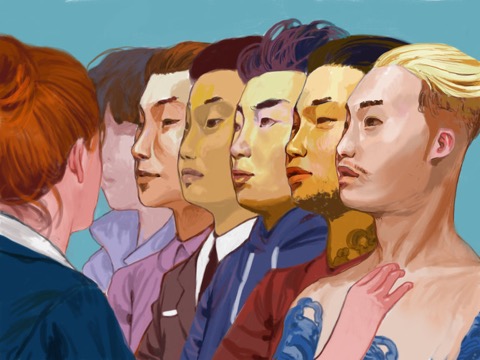
“Before ever reading about the history of discrimination against Asian-Americans — from the “yellow peril” to the Chinese Exclusion Act to the Japanese-American internment camps to the model minority myth to Vincent Chin and Pvt. Danny Chen – every Asian-American man knows what the dominant culture has to say about us. We count good, we bow well, we are technologically proficient, we’re naturally subordinate, our male anatomy is the size of a thumb drive and we could never in a thousand millenniums be a threat to steal your girl.
As a kid, you believe the things you’re told about yourself. But as I grew, I started to see things unravel. I wasn’t subordinate, I didn’t count good, I hated bowing, and outside downloading GIFs of Daisy Fuentes, I was terrible with computers. My first reaction, and the reaction of everyone at Chinese language school as well, was that I was defective and destined for life on a rack at T.J. Maxx begging to get chosen despite my imperfections. So many Asian-Americans I grew up with bought into the expectations the dominant culture placed on them and did everything they could to meet them. I recognized from a young age that I couldn’t and began to plan for life on the margins.
I realized that people on the margins aren’t afforded the privilege of being complicated, whole, human beings in America; we have to create that existence ourselves, and it is that experience that I feel fundamentally binds us. Over time, I began to find solidarity with my singularity and difference.”

“Before ever reading about the history of discrimination against Asian-Americans — from the “yellow peril” to the Chinese Exclusion Act to the Japanese-American internment camps to the model minority myth to Vincent Chin and Pvt. Danny Chen – every Asian-American man knows what the dominant culture has to say about us. We count good, we bow well, we are technologically proficient, we’re naturally subordinate, our male anatomy is the size of a thumb drive and we could never in a thousand millenniums be a threat to steal your girl.
As a kid, you believe the things you’re told about yourself. But as I grew, I started to see things unravel. I wasn’t subordinate, I didn’t count good, I hated bowing, and outside downloading GIFs of Daisy Fuentes, I was terrible with computers. My first reaction, and the reaction of everyone at Chinese language school as well, was that I was defective and destined for life on a rack at T.J. Maxx begging to get chosen despite my imperfections. So many Asian-Americans I grew up with bought into the expectations the dominant culture placed on them and did everything they could to meet them. I recognized from a young age that I couldn’t and began to plan for life on the margins.
I realized that people on the margins aren’t afforded the privilege of being complicated, whole, human beings in America; we have to create that existence ourselves, and it is that experience that I feel fundamentally binds us. Over time, I began to find solidarity with my singularity and difference.”
EC - Alt and Queer Manga
01/14/17 18:51
I’m happy to give extra credit to anyone who attends this lecture and writes a reflection.
Alt Manga, Queer Manga: Telling Our Own Stories
Erica Friedman, Independent Researcher and Founder of Yuricon
Thursday, January 19, 2017
12:00-1:30 PM
Room 1636 School of Social Work Building
"Alt Manga, Queer Manga: Telling Our Own Stories" will discuss fan perception of anime/manga, online community building and how that lead to the creation and dissemination of alt- and queer-manga as successful genres.
This talk establishes the social and political landscape and market forces that brought about a rise in manga by and for gender and sexual minorities, both in Japan and the west. Starting with the days before the Internet, as fan communities developed and digressed, through through contemporary political shifts. This talk contextualizes the complex interplay of creators' desires to tell stories, fan interpretation of those stories and industry commercialization in regards to identification with and representation of sexual and gender minorities in manga and anime.
Erica Friedman writes the world’s oldest and most comprehensive blog on Yuri, lesbian-themed Japanese cartoons, comics and related media, at Okazu.yuricon.com. Erica has spoken about anime and manga across US, in the UK and Japan. She has written for Japanese literary journal Eureka, Animerica magazine, the Comic Book Legal Defense Fund, and contributed to Forbes, Slate, Huffington Post, Hooded Utilitarian, The Mary Sue and Afterellen online.
Alt Manga, Queer Manga: Telling Our Own Stories
Erica Friedman, Independent Researcher and Founder of Yuricon
Thursday, January 19, 2017
12:00-1:30 PM
Room 1636 School of Social Work Building
"Alt Manga, Queer Manga: Telling Our Own Stories" will discuss fan perception of anime/manga, online community building and how that lead to the creation and dissemination of alt- and queer-manga as successful genres.
This talk establishes the social and political landscape and market forces that brought about a rise in manga by and for gender and sexual minorities, both in Japan and the west. Starting with the days before the Internet, as fan communities developed and digressed, through through contemporary political shifts. This talk contextualizes the complex interplay of creators' desires to tell stories, fan interpretation of those stories and industry commercialization in regards to identification with and representation of sexual and gender minorities in manga and anime.
Erica Friedman writes the world’s oldest and most comprehensive blog on Yuri, lesbian-themed Japanese cartoons, comics and related media, at Okazu.yuricon.com. Erica has spoken about anime and manga across US, in the UK and Japan. She has written for Japanese literary journal Eureka, Animerica magazine, the Comic Book Legal Defense Fund, and contributed to Forbes, Slate, Huffington Post, Hooded Utilitarian, The Mary Sue and Afterellen online.
EC - Math Talk
01/13/17 10:02
I’d be happy to give extra credit to any student who attends this talk and writes a reflection about it.
As part of the University's Rev. Dr. Martin Luther King, Jr. Symposium, the Department of Mathematics presents the annual Marjorie Lee Browne Colloquium Lecture:
Math in the Age of Trump
Given by Professor Chelsea Walton
2011 UM Mathematics Ph.D. graduate
Selma Lee Bloch Brown Early Career Assistant Professor, Temple University
4:00 p.m., Monday, January 16, 2017
East Hall Room 1360
530 Church Street, Ann Arbor, MI
Reception to follow in Mathematics Atrium
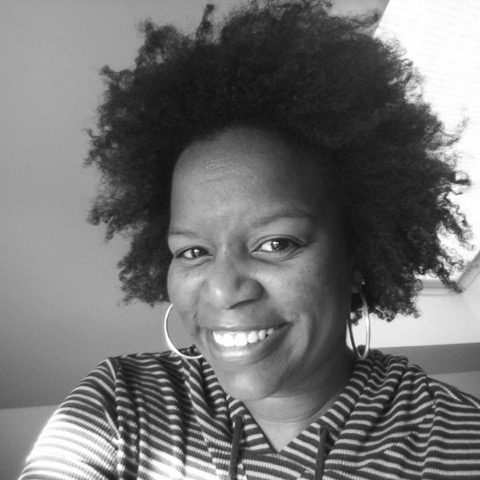
For obvious reasons, I do not fit into the standard mold of a mathematician. But over time, I have learned to embrace my identity within the mathematics community and have learned to use this to my advantage. This talk will be a reflection of this unfolding, so naturally it will be an open, frank, and personal lecture. It will feature some striking, and sometimes rather awkward, conversations I have had about race, gender, and social justice within and also outside of academia. Even though a few of these experiences were negative initially, I will share how I eventually gained something very positive out of each of these interactions.
Now due to a certain recent political event, some of us might not feel so optimistic these days and one may think that they are powerless in shaping society as a whole. This is the subject of another talk (by someone better than me!) but here I propose that we “make the problem smaller” as one does typically in math to gain traction on a tough problem. Namely I hope to convince you that every one of us has certain and immediate power in propelling math culture in the positive direction towards diversity, inclusion, and fairness amongst all mathematicians—not just the ones who fit into the standard mold.
As part of the University's Rev. Dr. Martin Luther King, Jr. Symposium, the Department of Mathematics presents the annual Marjorie Lee Browne Colloquium Lecture:
Math in the Age of Trump
Given by Professor Chelsea Walton
2011 UM Mathematics Ph.D. graduate
Selma Lee Bloch Brown Early Career Assistant Professor, Temple University
4:00 p.m., Monday, January 16, 2017
East Hall Room 1360
530 Church Street, Ann Arbor, MI
Reception to follow in Mathematics Atrium

For obvious reasons, I do not fit into the standard mold of a mathematician. But over time, I have learned to embrace my identity within the mathematics community and have learned to use this to my advantage. This talk will be a reflection of this unfolding, so naturally it will be an open, frank, and personal lecture. It will feature some striking, and sometimes rather awkward, conversations I have had about race, gender, and social justice within and also outside of academia. Even though a few of these experiences were negative initially, I will share how I eventually gained something very positive out of each of these interactions.
Now due to a certain recent political event, some of us might not feel so optimistic these days and one may think that they are powerless in shaping society as a whole. This is the subject of another talk (by someone better than me!) but here I propose that we “make the problem smaller” as one does typically in math to gain traction on a tough problem. Namely I hope to convince you that every one of us has certain and immediate power in propelling math culture in the positive direction towards diversity, inclusion, and fairness amongst all mathematicians—not just the ones who fit into the standard mold.
Genderless in Japan?
01/12/17 14:07
Jordan sends this in:
I was looking at the NY Times just now at the front page and I saw something that caught my eye and kind of relates to what we were talking about in class on Wednesday in terms of a set of preconceived roles there are in families in Japan and about the roles of masculinity/femininity. This pop star calls himself a danshi or "genderless". I think it's interesting how in the video they were saying these ideas are being supported by younger generation and may eventually change what is "normal" in Japan. I thought it was an interesting video/interview and I thought I'd pass it along because it kind of coincides with the roles we were discussing in class.
NB: This links with a great chapter we’ll read by S.P.F. Dale later in this semester!
I was looking at the NY Times just now at the front page and I saw something that caught my eye and kind of relates to what we were talking about in class on Wednesday in terms of a set of preconceived roles there are in families in Japan and about the roles of masculinity/femininity. This pop star calls himself a danshi or "genderless". I think it's interesting how in the video they were saying these ideas are being supported by younger generation and may eventually change what is "normal" in Japan. I thought it was an interesting video/interview and I thought I'd pass it along because it kind of coincides with the roles we were discussing in class.
NB: This links with a great chapter we’ll read by S.P.F. Dale later in this semester!
EC - The Philippines under President Durterte
01/12/17 13:47
I’m happy to give extra credit to any student who attends this event and writes a reflection about it.
The Philippines
under
President Duterte
Monday January 30, 2017
1:30-3:00 pm
1636 School of Social Work Building

Since his election in May of 2016, President Rodrigo Duterte has charted a controversial course for his country, the Philippines. In just six months, Duterte has shaken up his country’s foreign relations, launched an attempt to amend the constitution, and overseen a campaign against drugs that has resulted in the deaths of nearly 6,000 people.
Featuring four experts from the University of Michigan, the panelists will offer their perspectives on Duterte’s tumultuous term and its implications
The Philippines
under
President Duterte
Monday January 30, 2017
1:30-3:00 pm
1636 School of Social Work Building

Since his election in May of 2016, President Rodrigo Duterte has charted a controversial course for his country, the Philippines. In just six months, Duterte has shaken up his country’s foreign relations, launched an attempt to amend the constitution, and overseen a campaign against drugs that has resulted in the deaths of nearly 6,000 people.
Featuring four experts from the University of Michigan, the panelists will offer their perspectives on Duterte’s tumultuous term and its implications
EC - Intellectual History of Black Women
01/09/17 10:57
I’m happy to give extra credit to students who attend this presentation / discussion and write a reflection about it.
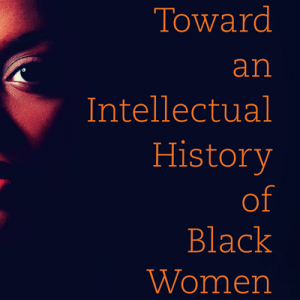

| Gender: New Works, New Questions |
EC Opportunity - The Political Economy of Plunder
01/09/17 10:52
I’m happy to give extra credit to any student who is able to attend this event and writes a reflection essay about it. The details of how to complete an extra credit assignment are here.
The Political Economy of Plunder

Event Information
Date & Time
January 13, 2017 - 4:00pm to 6:00pm
Location
Hatcher Graduate Library, Gallery (Room 100)
Location Information
Series
Symposium 1817: Nation Building in the Old Northwest and the Making of the University of Michigan
Event Type
Symposium
“The Political Economy of Plunder," part of Symposium 1817: Nation Building in the Old Northwest and the Making of the University of Michigan, features Michael Witgen and Tiya Miles, who discuss the development of the Michigan territory in the years that U-M initially took shape, 1817-1837. Professor Witgen emphasizes the dispossession of Anishinaabe peoples in a series of treaties that set the stage for U-M’s beginning. Professor Miles considers the history of the slave-holding elite in Detroit as well as the activities of the underground railroad there in the antebellum years.
On January 12, Colson Whitehead reads from his 2016 National Book Award winning novel, The Underground Railroad, set in the period of the university’s founding. The novel links American slavery to the dispossession of Native peoples and further illuminates the concerns that Professors Witgen and Miles have probed.
This LSA Bicentennial Theme Semester event is presented with support from the College of Literature, Science, and the Arts and the University of Michigan Bicentennial Office. Additional support provided by the Department of History and the Eisenberg Institute for Historical Studies.
The Political Economy of Plunder

Event Information
Date & Time
January 13, 2017 - 4:00pm to 6:00pm
Location
Hatcher Graduate Library, Gallery (Room 100)
Location Information
Series
Symposium 1817: Nation Building in the Old Northwest and the Making of the University of Michigan
Event Type
Symposium
“The Political Economy of Plunder," part of Symposium 1817: Nation Building in the Old Northwest and the Making of the University of Michigan, features Michael Witgen and Tiya Miles, who discuss the development of the Michigan territory in the years that U-M initially took shape, 1817-1837. Professor Witgen emphasizes the dispossession of Anishinaabe peoples in a series of treaties that set the stage for U-M’s beginning. Professor Miles considers the history of the slave-holding elite in Detroit as well as the activities of the underground railroad there in the antebellum years.
On January 12, Colson Whitehead reads from his 2016 National Book Award winning novel, The Underground Railroad, set in the period of the university’s founding. The novel links American slavery to the dispossession of Native peoples and further illuminates the concerns that Professors Witgen and Miles have probed.
This LSA Bicentennial Theme Semester event is presented with support from the College of Literature, Science, and the Arts and the University of Michigan Bicentennial Office. Additional support provided by the Department of History and the Eisenberg Institute for Historical Studies.
This is Your Brain on Screens
01/02/17 08:37

Despite my own use of technology in and out of the classroom, I have a strong restriction against students using laptops or tablets or phones in class. At the beginning of the semester, I want to explain my reasoning behind this policy.
I believe that it is incredibly hard not to multi-task when you are sitting in front of a screen, be it a TV or computer screen. And, although multi-tasking might feel good to some people at some moments, every piece of evidence I have ever read or experienced convinces me of the opposite. Multi-tasking hinders listening, thinking, engagement, and learning, all of which we are trying to maximize in the classroom.
For more on this topic, check out this article about the benefits of unplugging from technology and Nicholas Carr’s work on “how the Internet is making us stupid.” To be clear, I think technology is a wonderful thing and I have no problem with video games or blogs or cat videos, but only in the right context. I do not believe that having access to the internet’s firehose of information is good while you’re in a class session trying to think, listen, and share your ideas.
If you have a reason that you need to use a laptop or other device in class, please come and talk with me.
I also realize I might need to explain the title of this post -- do I? Does it make any sense to you? Like everyone in my generation, I grew up seeing this commercial on TV. I feel like “This is your brain on drugs” might be phrase that people in your generation would recognize, too, but maybe not? Here’s what I’m talking about --
